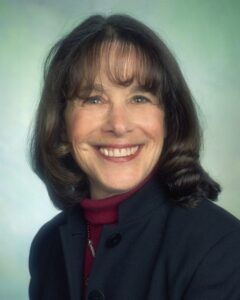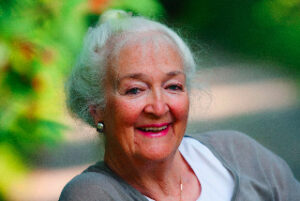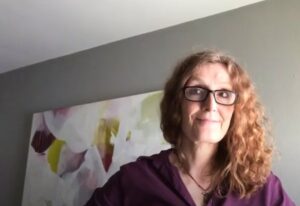Keynote
Friday:
Carole Miller und Juliana Saxton
Drama – The critical capacity to be a reader and writer of the world through the embodiment of self as other
Almost half a century ago Gavin Bolton (1984) recognized the power of embodied narrative when he argued for placing drama at the centre of the curriculum. Rather than seeing literacy practices as disconnected from their lives, students in drama use their literacy skills in the rehearsal of life situations that demand their participation. Because it offers multiple ways of learning, experiencing, and exploring through role and in action, drama is accessible to a diversity of learners. Using drama strategies to enact stories, bridges all kinds of literacies and integrates curriculum in ways that develop a student’s self-efficacy and self-identity. Such a rich pedagogy, we suggest, is crucial to the development of the whole person and by extension, to the continued generation of healthy, literate and democratic societies.
References
Bolton, G. (1984). Drama as education: An argument for placing drama at the centre of the curriculum. London, UK: Longman.
Samstag:
Almut Küppers
Klimakrise in der Bildung oder: Warum dieser Titel ganz ohne Digitalisierung auskommt, aber auf die Dringlichkeit performativer Bildungsprozesse verweist.
Ein kleiner Virus bewirkt eine gesellschaftliche Vollbremsung und katapultiert dabei die Schulen (zumeist unfreiwillig) in die virtuellen Realitäten des 21. Jahrhunderts. Durch den erzwungenen gesellschaftlichen Stillstand werden innerhalb kürzester Zeit nahezu alle Bereiche menschlichen Zusammenlebens digital überformt. So erleb(t)en wir etwa 10.000 Jahre nach der Sesshaftwerdung der Menschheit eine zweite, z.T. viel radikalere „Sesshaftwerdung“ vor Bildschirmen und Computern. Technologischer Wandel, drohende gesellschaftliche Zäsuren und Krisen werfen uns stets zurück auf das Wesentliche, auf die zentrale Frage des Seins und Menschseins: wie wollen wir leben? Technologien sind dabei nie deterministisch, sondern stehen im Dienste der Ideologien, die sie nutzen. So wie die Dampflok auf den ersten Gleisen im 19. Jahrhundert gleichzeitig in den Kommunismus und in den Kapitalismus rollte, so stehen wir derzeit vor der Frage, wohin wollen wir mit der allseits beschworenen Digitalisierung? Wohin wollen wir mit Crispr? Wohin wollen wir mit Alexa? Wohin wollen wir mit künstlicher Intelligenz und selbstlernenden Algorithmen?
Inspiriert durch die Fragen des Zukunftshistorikers Yuval Noah Harari (2018) schließe ich mich der These Ken Robinsons an, dass wir es nicht nur im planetaren Kontext mit einer Klimakrise zu tun haben, sondern auch im Bildungsbereich (vgl. Küppers 2021). Beide Klimakrisen haben dabei dieselben neoliberalen Wurzeln und in beiden Fällen handelt es sich um eine Verschwendung von Ressourcen. Während Biodiversität und die natürlichen Ressourcen der Erde einem rasanten Bevölkerungswachstum und einer Wirtschaftsideologie weichen, die sich beharrlich am endlosen Wachstum orientiert, werden die Ressourcen junger Menschen verschwendet, weil sie ihre Potenziale in den Schulen nicht entfalten können: Wie / kann man nachfolgende Generationen in Schulgebäuden aus dem 19. Jahrhundert mit Methoden aus dem 20. Jahrhundert auf eine sich rasant verändernde und komplexer werdende Zukunft im 21. Jahrhundert vorbereiten? Dabei sind es die kreativen Ressourcen junger Menschen, die für die Bewältigung der anstehenden gesellschaftlichen Transformationsprozesse so dringend benötigt werden. Ausgehend von den Grundprinzipien guter Bildung, die online und offline identisch sind – Arbeit in guten Beziehungen – werde ich versuchen herauszuarbeiten, welchen Rolle performative Lernprozesse im Kontext von technologischem Wandel, Nachhaltigkeit, postmigrantischer Vielfalt und Chancenungleichheit spielen / sollten. Theoretisch gerahmt wird dieser Versuch durch den Ansatz Bildung 4.0 und Otto Scharmers (2018) Theory U, womit ein Systemwandel von Ego- zu Eco-Awareness propagiert und fundiert wird.
Referenzen
Harari, Yuval Noah (2018), 21 Lessons for the 21st Century. London: Jonathan Cape
Küppers, Almut (im Erscheinen): Sprachenlernen in der postmigrantischen Gesellschaft. Oder: Braucht eine offene Gesellschaft ein offenes Fremdsprachencurriculum? In: Welche Zielsetzungen sind für Französisch, Spanisch, Russisch & Co. (noch) zeitgemäß? Perspektiven der weiteren Schulfremdsprachen im Zeitalter von Global English und
Digitalisierung, hg. v. Anka Bergmann, Christoph O. Mayer & Jochen Plikat. Berlin: Peter Lang.
Scharmer, Otto (2018), The Essentials of Theory U. Core Principles and Applications. Oakland: Berrett-Koehler
Short biographies
 Carole Miller is an emeritus professor at the University of Victoria where she continues to mentor pre-service students, exploring pedagogies that engender competent and comfortable classroom drama educators. Her collaborative studies with Juliana Saxton focus on inquiry-based instruction, applied theatre, and drama in education. Their latest text (2018), Asking Better Questions: Teaching and learning for a changing world (3rd Ed.) with Joanne O’Mara and Linda Laidlaw, encourages teachers and facilitators to challenge participants to assume a deeper ownership of their learning. Co-author with Saxton of the award-winning book, Into the Story: Language in Action through Drama from the American Alliance of Theatre and Education and Into the Story 2: More Stories! More Drama! Miller is a recipient of an Excellence in Teaching Award and was recently honoured with a Lifetime Achievement Award from the Journal of Applied Arts and Health (2019). It has been a lifetime of discovery, engaged in the potential of the arts to affect learners in myriad ways.
Carole Miller is an emeritus professor at the University of Victoria where she continues to mentor pre-service students, exploring pedagogies that engender competent and comfortable classroom drama educators. Her collaborative studies with Juliana Saxton focus on inquiry-based instruction, applied theatre, and drama in education. Their latest text (2018), Asking Better Questions: Teaching and learning for a changing world (3rd Ed.) with Joanne O’Mara and Linda Laidlaw, encourages teachers and facilitators to challenge participants to assume a deeper ownership of their learning. Co-author with Saxton of the award-winning book, Into the Story: Language in Action through Drama from the American Alliance of Theatre and Education and Into the Story 2: More Stories! More Drama! Miller is a recipient of an Excellence in Teaching Award and was recently honoured with a Lifetime Achievement Award from the Journal of Applied Arts and Health (2019). It has been a lifetime of discovery, engaged in the potential of the arts to affect learners in myriad ways.
 Juliana Saxton, after an early career in theatre, television and film, is now professor emeritus of Drama/Theatre in Education and Applied Theatre in the Department of Theatre, University of Victoria. She has been recognized as a Teacher of Excellence, holder of three Distinguished Book Awards from the American Alliance of Theatre and Education that also presented her the Campton Bell Lifetime Achievement Award. Her most recent publication is Asking Better Questions: Teaching and Learning for a Changing World (2018, 3rd Ed.), and she is presently engaged in updating the 2nd edition of Applied Theatre: International Case Studies and Challenges for Practice with Monica Prendergast and Yasmine Kandil. In 2013, the Canadian Association for Theatre Research awarded her an Honorary Membership. She has found that age does wither but her collaborators allow her to continue a life of infinite variety with much joy.
Juliana Saxton, after an early career in theatre, television and film, is now professor emeritus of Drama/Theatre in Education and Applied Theatre in the Department of Theatre, University of Victoria. She has been recognized as a Teacher of Excellence, holder of three Distinguished Book Awards from the American Alliance of Theatre and Education that also presented her the Campton Bell Lifetime Achievement Award. Her most recent publication is Asking Better Questions: Teaching and Learning for a Changing World (2018, 3rd Ed.), and she is presently engaged in updating the 2nd edition of Applied Theatre: International Case Studies and Challenges for Practice with Monica Prendergast and Yasmine Kandil. In 2013, the Canadian Association for Theatre Research awarded her an Honorary Membership. She has found that age does wither but her collaborators allow her to continue a life of infinite variety with much joy.
 Almut Küppers works at the Goethe University in Frankfurt in language teaching research and didactics of English. Her first encounter with drama pedagogy was in an (imagined) trench in Flanders during World War 1 – when she was doing her PGCE in Birmingham / UK. Since then, performative approaches have been content and means in her university undergraduate teacher education courses. Her interests lie in the intersections of language education and identity development, so she has an eye on both the micro-level of teaching and the macro-level (school, education system, policy). She is a Fulbright and Mercator alumna and has lived abroad for many years (UK, USA, Turkey). In her current school development project she focuses on multilingualism from the perspective of migration, inequality and sustainability research and uses performative as well as digital forms of teaching and learning (cf. https://uni-frankfurt.academia.edu/AlmutKüppers ).
Almut Küppers works at the Goethe University in Frankfurt in language teaching research and didactics of English. Her first encounter with drama pedagogy was in an (imagined) trench in Flanders during World War 1 – when she was doing her PGCE in Birmingham / UK. Since then, performative approaches have been content and means in her university undergraduate teacher education courses. Her interests lie in the intersections of language education and identity development, so she has an eye on both the micro-level of teaching and the macro-level (school, education system, policy). She is a Fulbright and Mercator alumna and has lived abroad for many years (UK, USA, Turkey). In her current school development project she focuses on multilingualism from the perspective of migration, inequality and sustainability research and uses performative as well as digital forms of teaching and learning (cf. https://uni-frankfurt.academia.edu/AlmutKüppers ).
